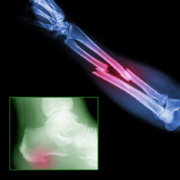Food vs. Supplements: A Closer Look
There’s no question National Health and Nutrition Examination Survey (NHANES) has done the best job of collecting data on nutritional intake in large-scale studies. I’ve applauded it in the past, and I’m not going to change now just because there’s an NHANES-based paper that critiques the use of supplements. NHANES data were used by one of the co-authors of the current research paper we’re examining; in that study, they demonstrated regular use of a multivitamin-multimineral can compensate for deficiencies in our diet.
What could explain the same data showing potential benefits and hazards of supplements? Two reasons in my opinion. First, the research questions were not part of the original study; that’s supported by the fact that the lead author would have been six or seven years old when data collection began.
Imagine you apply for a loan. You’d give the bank all kinds of financial data: your total earnings, where you work, what you owe, and so on. Then imagine that researchers take all that very accurate data and estimate your hourly wage. They could be right on the money or way off, because they don’t know how many hours you worked; that wasn’t one of the questions. It’s the same with the data in this study; the researchers can make a great guess from the data they have, but the question they’re trying to answer wasn’t one of the original questions asked so their guess may be very far from correct. That happens often in these retrospective studies.
Second, the bulk of the researchers were experts in statistics and epidemiology. The statistical analysis accounted for 11 factors to numerically make the data comparable. We can’t really know what that does to modify the data instead of collecting data on actual variables.
Still worried? I’ll finish this up on Saturday.
What are you prepared to do today?
Dr. Chet
Reference: Ann Intern Med. doi:10.7326/M18-2478.









